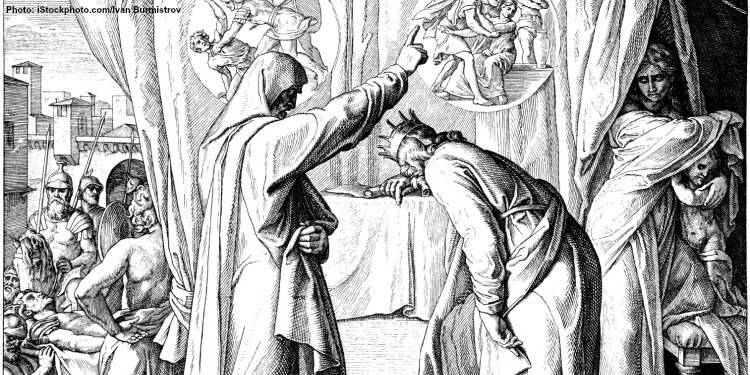Judge Mercifully
The Fellowship | January 28, 2019

“‘Do not pervert justice; do not show partiality to the poor or favoritism to the great, but judge your neighbor fairly.'” — Leviticus 19:15
When Dr. Martin Luther King Jr. and other African-American leaders began their heroic march for civil rights and fight for justice, the Jewish community stood side-by-side on the frontlines of faith. As we honor Dr. King’s legacy this month, let Rabbi Yechiel Eckstein’s reflections on justice inspire and encourage you.
For more on the historic and spiritual bonds between the African-American and Jewish community, download our complimentary booklet here.
When Nathan the prophet came to rebuke King David for the sin of taking Bathsheba even though she was a married woman, he told the king a story. On the surface, the story had nothing to do with Bathsheba at all; rather Nathan told David a story about a poor man who had only one sheep. A rich man, who already had many sheep, stole that poor man’s only lamb so he could slaughter it and serve it to his guests.
Then Nathan asked David to pass judgment on the thief. David, deeply moved by the plight of the poor man, expressed his outrage and said any man who would do such a thing deserved to die. Only then did Nathan reveal that the story was only a parable to illustrate what David had done by taking Bathsheba. By sentencing the thief in the story to death, David, in fact, was pronouncing his own punishment. In the end, David repented, and although he was not punished by death, God did discipline him, and David and his family suffered many calamities as a consequence for his actions.
What we need to learn from this story is that God often puts us in the same situation in which Nathan put David. If we are asked to judge someone else, or if we are put in a position where we are likely to judge another person, it often is because we ourselves have committed a sin of a similar nature.
Like the prophet, God tells us our own story in a disguised form. Then, God looks at how we judge others and uses our judgment as the barometer for how He will judge us. If we pass judgment with mercy and kindness and give someone the benefit of the doubt, then God will do the same for us. But if we judge with strictness and harshness, then we ought to be very afraid for the day when God will pass judgment on us.
In today’s verses, we read, “judge your neighbor fairly.” However, as flawed human beings with limited knowledge, can we ever pass a truly appropriate judgment? Can we ever be certain that we are 100 percent correct in our assessment? The answer, of course, is that we cannot. We will err in one way or another – we will be either too lenient or overly harsh. This is why the sages comment on this verse that we should judge others with an inclination in their favor. If we are going to err, we might as well err on the side that benefits the one we are judging, especially since ultimately, we are judging ourselves.
Today, pay attention to the stories that God shows you. Notice your reactions and your judgment calls. Temper them greatly with mercy. Not only will you glorify God by showing kindness to others, but ultimately, the benefactor of your kindness will be you!
Download your complimentary copy of our booklet, On the Frontlines of Faith, which explores the historic and spiritual bond between the African-American and Jewish communities during the Civil Rights Movement.
